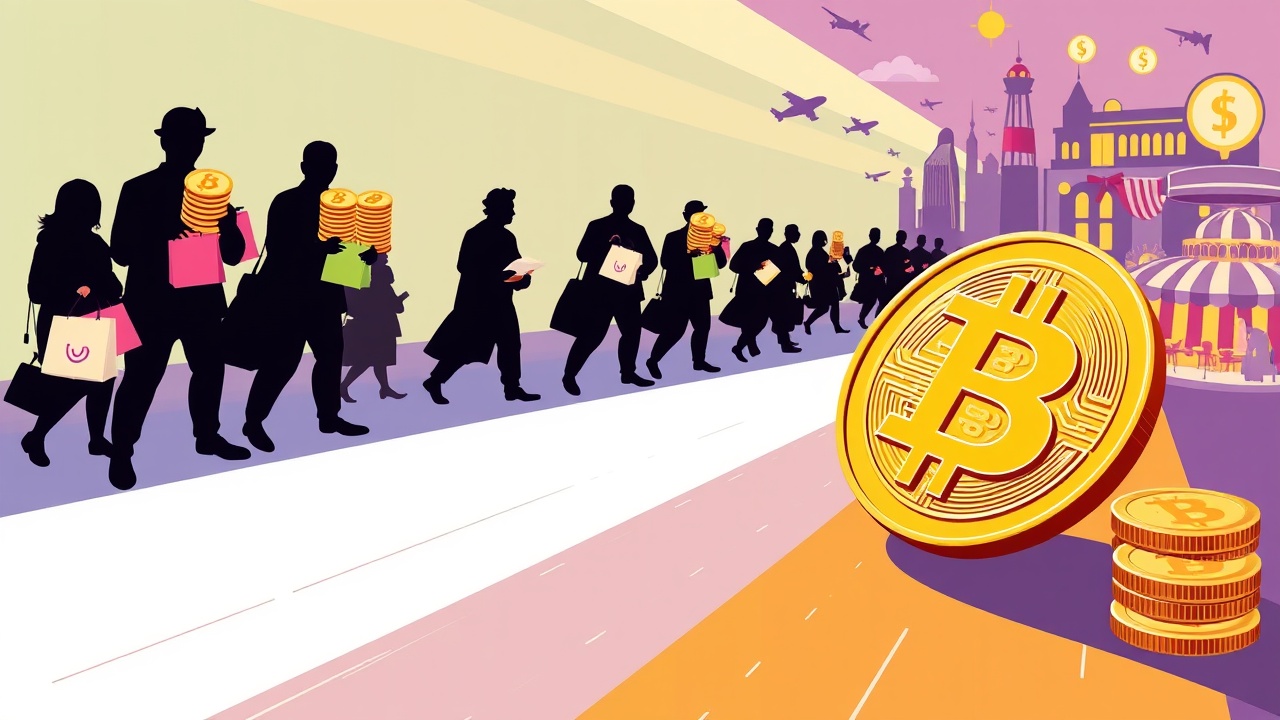The Concept of “Hodl” in the Bitcoin Community
The Bitcoin community often rallies around the concept of “Hodl”—the practice of holding onto Bitcoin as a hedge against inflationary fiat currencies. Advocacy for hoarding this digital asset stems from a belief that Bitcoin represents a superior form of money; however, many enthusiasts misinterpret Gresham’s Law, which posits that “bad money drives out good.” In many cases, the belief that fiat currency is entirely dispensable is misguided, particularly in nations like South Africa, where local currency stability is precarious.
Challenges of the Hoarding Mindset
Critically, this hoarding mindset discourages treating Bitcoin as a functional currency and promotes its perception solely as a long-term investment. This approach diverges from the vision outlined by Bitcoin’s creator, Satoshi Nakamoto, in his 2008 white paper on “a Peer-to-Peer Electronic Cash System.” Such a mentality stymies Bitcoin’s broader acceptance and practical use, aligning it more with a speculative asset rather than a widely utilized currency.
The Importance of Spending Bitcoin
Generally, saving—often referred to as hodling—serves specific goals, such as accumulating resources for significant purchases like homes or cars. Yet, to achieve these aspirations, individuals inevitably need to convert their holdings into fiat currency. In contrast, utilizing Bitcoin for everyday expenses strengthens its market demand, encouraging merchants to embrace it as a payment option and bolstering its role as a practical currency.
Current Adoption Hurdles
Currently, Bitcoin faces substantial hurdles regarding adoption. Despite the enthusiasm from advocates seeking to “orange-pill” merchants and encourage the acceptance of Bitcoin, the prevailing habit of hoarding means many individuals are reluctant to part with their assets. Frustrated by this, some merchants have ceased to accept Bitcoin due to low transaction volumes, as evidenced by South African payment processor PayFast, which initially adopted Bitcoin in 2014 but later retracted its acceptance five years on.
Some proponents argue for a gradual increase in adoption as Bitcoin holders grow wealthier, maintaining that spending will naturally ensue. However, without immediate use cases, Bitcoin risks remaining primarily an investment vehicle, leading to potential regulatory constraints that view it as an asset rather than currency. The current climate emphasizes the importance of spending regularly alongside saving, which can promote Bitcoin’s perceived value and functionality.
Strategies for Engagement
To foster a more engaged ecosystem, individuals should consider maintaining separate wallets for savings and expenditures, aiding in tax management while promoting usage. Spending Bitcoin for ordinary items—groceries or coffee—can affirm its status as an alternative currency and highlight its benefits in everyday transactions; speed and convenience often surpass conventional payment methods.
Regulatory Challenges and Societal Implications
Despite challenges, such as tax implications tied to each transaction, progress could be made if authorities adopt forward-thinking approaches to cryptocurrency taxation, as seen in Australia. In South Africa, the government’s restrictive views have influenced the regulatory landscape, treating Bitcoin as a financial instrument rather than legitimate currency. Furthermore, licenses for crypto payment processors have become stalled as the regulatory framework attempts to catch up with the pace of technological advancement.
This ongoing delay in regulating cryptocurrencies reflects deeper societal tensions, especially in a nation like South Africa grappling with economic uncertainty, where inflationary concerns drive individuals to seek alternative forms of money. As citizens navigate the complexities of local currency limitations, vibrant Bitcoin communities sprout up, particularly in regions vulnerable to economic fluctuations. For instance, local trade networks have emerged along the Garden Route, aimed at fostering Bitcoin usage.
The Future of Bitcoin
In this context, regulatory developments, while necessary, represent an ongoing tug-of-war that shapes the future of Bitcoin’s utility. Bitcoin bears a strong reminder of duality, reminiscent of Dickens’ famous line—it embodies both incredible potential as a monetary system and the risks associated with its classification as an asset. The choice remains: should Bitcoin be perceived purely as a speculative investment or can it function effectively as currency? Turning beliefs into actions calls for proactive engagement in the ecosystem—using Bitcoin as both a store of value and a transactional medium is paramount.
It is imperative for Bitcoin holders to recognize their role in this evolving narrative: effective adoption necessitates spending, not just holding onto digital assets for future gains. So if you believe in Bitcoin’s potential, consider creating dedicated wallets—one for savings and the other for spending, essentially facilitating a dual strategy that enhances Bitcoin’s reach in the market. By doing so, you contribute to the essence of Bitcoin’s revolutionary purpose: to empower users through practical financial freedom and robust engagement in the economy.




